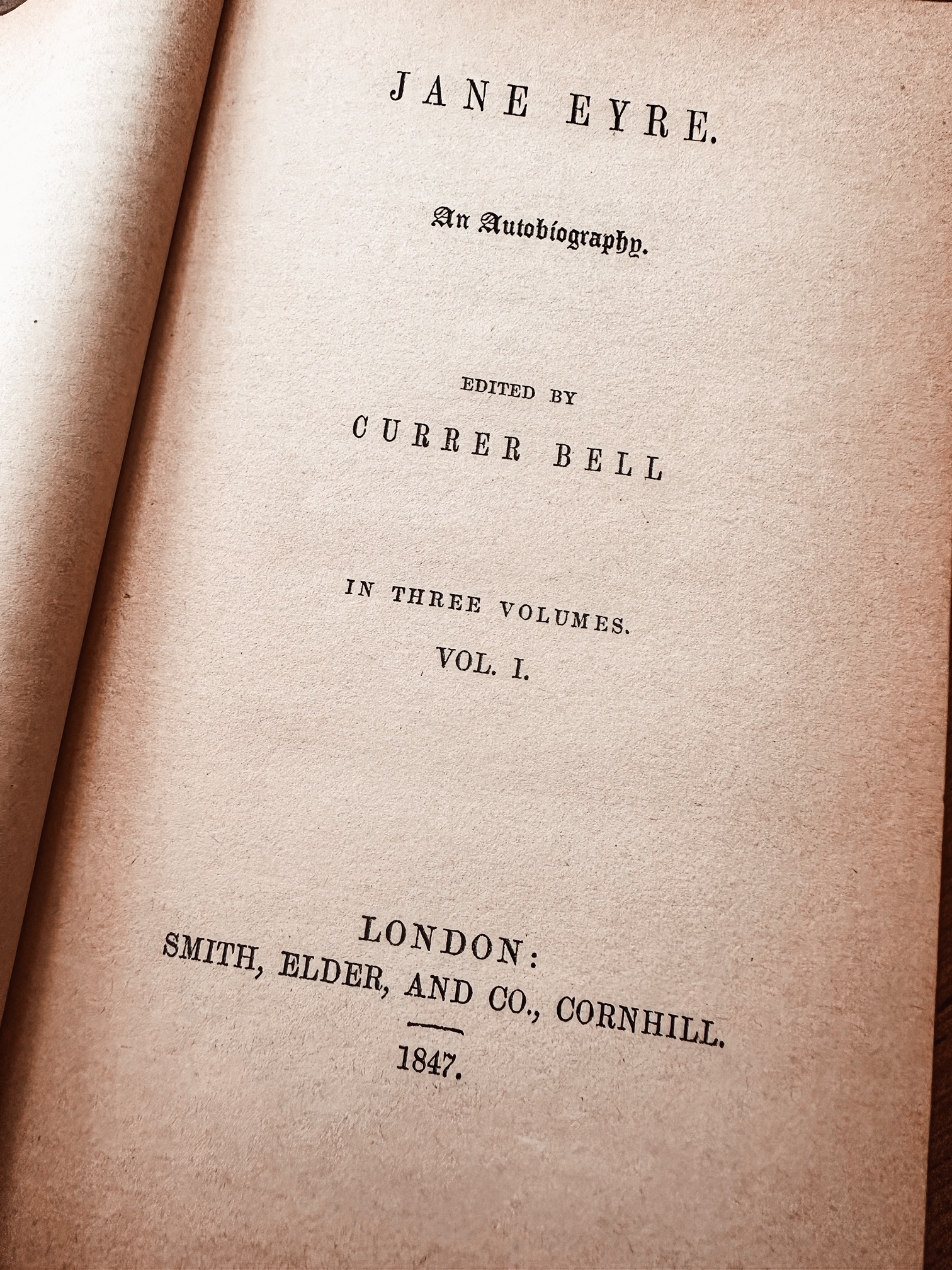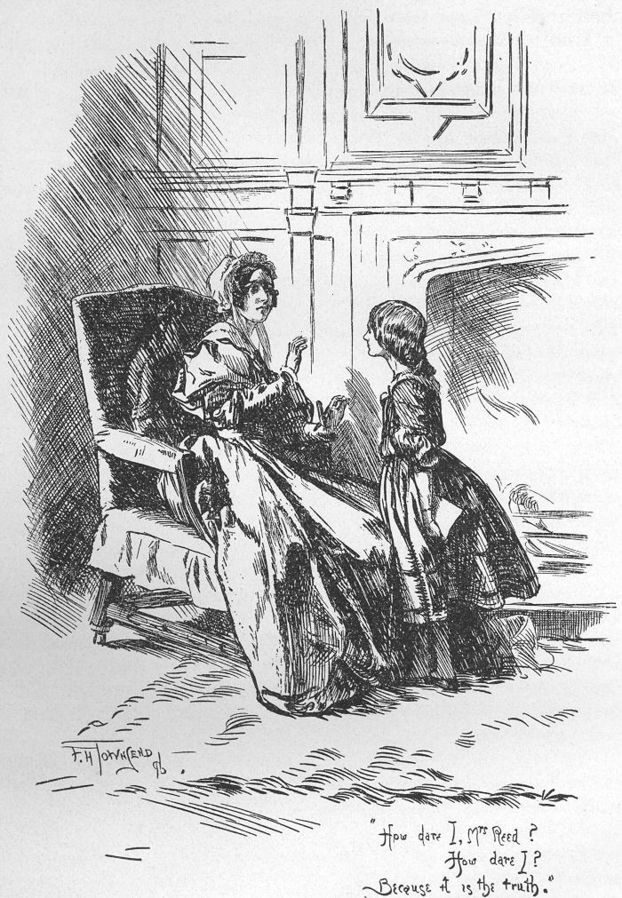This post/page may contain affiliate links. Please check out my privacy policy and disclosure policy.

Summary
“A novel of intense power and intrigue, Jane Eyre has dazzled generations of readers with its depiction of a woman’s quest for freedom. Having grown up an orphan in the home of her cruel aunt and at a harsh charity school, Jane Eyre becomes an independent and spirited survivor-qualities that serve her well as governess at Thornfield Hall. But when she finds love with her sardonic employer, Rochester, the discovery of his terrible secret forces her to make a choice. Should she stay with him whatever the consequences or follow her convictions, even if it means leaving her beloved?”
-From Amazon.com
Review
Jane Eyre is such a wonderful classic, and one that had been on my list for so long to read. Finally, I got to it and I am very glad that I did. It’s a wonderful story of an independent woman who makes her way on her own from nothing, to finding a family and about love in it’s various forms. It was certainly a book that had me smiling, wanting to throw it, and really overall trying to guess what would have happened next (and being so sure) and consistently being surprised.
Reading through a modern lens will not have you enjoy it.
This is a classic piece of literature and so any time you read such a book, you need to try and put yourself in the shoes of that time period to fully understand what is going on. Jane Eyre is set in the late 1700’s to early 1800’s, so you have to go into it with the mindset of society at that point. Women did not have rights like they do now, men have all the power, and education and independence was drastically different.
I will say I am guilty of going into books, like I was with this one, with a modern mindset and getting my feathers ruffled because of how the story goes. But, that being said, after a discussion and some further contemplation on the book, it really grew on me and will be a classic that will stick with me.
Trailblazing themes during patriarchal time period.
Understanding how the times are different really helps you understand how Jane was quite progressive and independent for her time. She managed to pull her life around, push away from a man after he treated her poorly, and was willing to remain alone instead of wanting to marry someone. It also showed a dedicated woman, albeit in my opinion a little foolish in the ending (although, once again that is a bit of my modern perspective coming in), something which was pretty new for the times and would have shaken up the status quo.
Jane began as a woman with nothing and through that, when she finally was presented with a life and a future, she was still incredibly generous and, as she had spent a lot of her life alone and ostracized, was comfortable with her way in life. It was so wonderful to read and follow her development and journey from a younger girl to a young woman through her challenges and how her life drastically changed.
But the story itself would have been quite shocking during when it was published (1847) and may have not been as wonderfully received as it was pushing against the patriarchy. While now one may say that the themes were subtle, during the mid 19th century, some of the bits of this book may have been borderline shocking.
 It is romance with a lower case “r”.
It is romance with a lower case “r”.
While Jane Eyre does have “romance” in it, it is not a romance book like a lot of modern readers would classify it. First off, there is no explicit romance scenes of any kind, which is expected because of when the book is written. But the romance is all glances, and feelings, and acknowledgements. It’s small case romance, not capitalized Romance. As JSTOR Daily put it,
“Readers have always picked up on the tension between the book’s revolutionary subtexts and its uneasy relationship with love.”
Romance in this book wasn’t cute, perfect, having a happily-ever-after theme, which most likely echoed Brontë’s life (definitely recommend reading the JSTOR Daily post). It was messy, full of disasters, made you angry and have a whole host of other emotions.
It felt a lot more raw and real as to what the true idea of love is where it isn’t a fairy tale. There are challenges in love and sometimes it is more than just being head over heels. Jane seemed to really want love, but was struggling to really find what it was, which came from a mix of her background and then with Mr. Rochester due to her societal status compared to him.
But through that, you really felt the themes of romance – not just for romantic interests but that Jane kind of had towards herself and others that she came across.
Mr. Rochester – a jerk or more real than we like to admit? St. John a little too demanding?
The main “love interest” in the book, Mr. Rochester, isn’t someone that you are supposed to particularly like. His love for Jane is fleeting and appears to be based in the moment. Is it love or is it a man infatuated with a young woman because other things in his life (no spoilers here) don’t go according to plan?
You never entirely get an answer about that but as a reader I am sure you can come to your own personal assumptions. But Mr. Rochester, for his societal station acted exactly how a man of his time would have. The outcome of Jane and Mr. Rochester was not exactly what I thought it was going to be, and in the moment I was frustrated, but after mulling it over it makes sense. Once again, especially for a book of this nature.
Then there is St. John, the pretty, overly zealous cousin of Jane. He wants to become a missionary to make something of his life for God and wants Jane to go along with him but the only way that would happen is to marry. Over and over Jane was adamant in her position, and over and over St. John would push. But Jane, being strong willed and knowing what she wanted, even with the slight temptation, stood firm.
Overall, it was certainly an enjoyable read and one that I can see myself reading again in the future as it is a book that you can so easily miss bits and pieces going on. There are a few movie versions out there, the 1996 version with Anna Paquin and William Hurt, and the 2011 version with Michael Fassbender and Mia Wasikwoska, among other adaptations. I will certainly be checking them out soon as I can get my hands on them!
Have you read Jane Eyre? What were your thoughts on the book and story?
Happy Reading!
